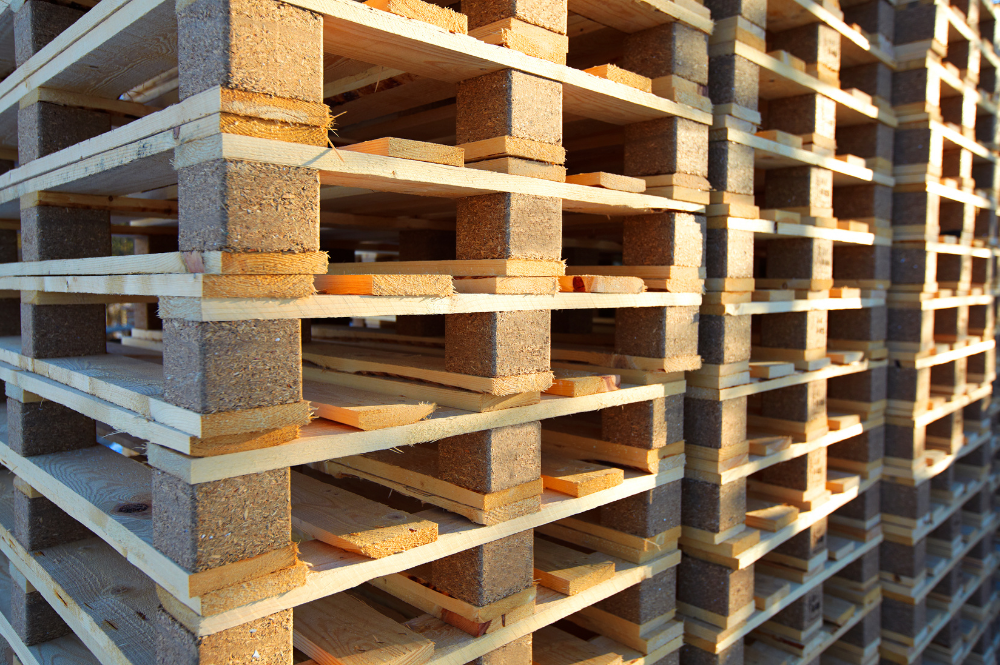Sustainability isn’t just a buzzword—it’s a movement reshaping industries worldwide. As businesses seek ways to minimize environmental impact, material handling is stepping into the spotlight. While efficiency and durability remain top priorities, companies are looking for solutions that align with sustainability initiatives.
Eco-friendly pallets and smart material handling strategies can help businesses cut down on waste, improve resource utilization, and reduce long-term costs. The right approach doesn’t always require drastic changes; small shifts in material choices and handling processes can make a significant impact.
Revolutionizing Material Handling with Smarter Choices
Material handling plays a crucial role in the supply chain. From warehouses to distribution centers, pallets and containers are the backbone of logistics. But, with global attention on sustainability, businesses are reconsidering how these materials impact the environment.
Eco-friendly pallets offer a practical way to reduce waste and promote responsible resource use. Whether made from renewable materials or built for long-term durability, they help companies meet sustainability goals while maintaining the performance needed for industrial operations.
Wood Pallets: A Renewable Resource with Built-in Sustainability
Wood remains one of the most widely used materials in material handling, and for good reason. Not only is it naturally renewable, but it also provides a balance of strength and affordability. When sourced from responsibly managed forests, wooden pallets support sustainable material handling by minimizing environmental impact.
Beyond their initial use, wooden pallets can be repurposed, repaired, or recycled into wood chips, mulch, or composite materials. Instead of sending them to landfills, businesses can extend their lifespan through refurbishment programs, further reducing waste.
Plastic Pallets: Durability Meets Sustainability Potential
While plastic may not be the first material that comes to mind for sustainability, its long-term durability gives it an unexpected advantage. Unlike disposable materials that wear down quickly, plastic pallets are designed for extended use, reducing the need for constant replacements.
Some plastic pallets are made from recycled materials and can be reprocessed at the end of their life cycle. When properly managed, they contribute to sustainable material handling by keeping plastic waste out of landfills. Additionally, their resistance to moisture and chemicals makes them ideal for industries that require strict hygiene standards, further extending their usability.
Beyond the Pallet: Maximizing Sustainability in Material Handling
While eco-friendly pallets are a strong starting point, true sustainability in material handling requires a broader approach. Businesses can implement practices that reduce energy consumption, optimize logistics, and minimize unnecessary waste.
- Efficient transportation logistics: Reducing empty transport miles and optimizing load capacities can lower carbon emissions.
- Reusability initiatives: Implementing returnable packaging and reusable containers decreases the need for disposable alternatives.
- Proper disposal methods: Establishing recycling partnerships ensures that end-of-life materials are repurposed rather than discarded.
Every stage of material handling presents an opportunity to operate more sustainably. By integrating smart practices alongside durable pallet solutions, businesses can make incremental yet impactful changes.
Balancing Sustainability with Industrial Strength
For many industries, durability isn’t negotiable. Material handling solutions must withstand heavy loads, rough handling, and rigorous environmental conditions. The challenge is finding ways to incorporate sustainable practices without sacrificing performance.
Eco-friendly pallets—whether wood or plastic—offer a middle ground. Wooden pallets provide strength with the added benefit of being biodegradable and recyclable. Meanwhile, high-quality plastic pallets offer long-term use with potential recyclability. Rather than choosing one over the other, businesses can evaluate which solutions align with their operational needs while improving sustainability efforts.
When combined with mindful logistics and resource management, sustainable material handling doesn’t mean compromise—it means smarter decision-making that benefits both the environment and the bottom line.
Moving Forward with Sustainable Solutions
The transition toward greener operations doesn’t require an overnight overhaul. Businesses can start small—exploring ways to extend the life cycle of their existing pallets, working with recycling programs, and optimizing handling processes. The key is progress over perfection.
As industries continue evolving, companies that prioritize sustainable material handling will not only reduce environmental impact but also strengthen their reputation and operational efficiency.
Ready to explore smarter solutions for your material handling needs? Contact B&G Industries today to learn how our high-quality pallet options can support your business goals.
FAQ
Are wooden pallets a sustainable choice?
Yes, wooden pallets sourced from responsible forestry programs are a renewable and recyclable option that aligns with sustainability efforts.
Can plastic pallets be eco-friendly?
Plastic pallets with long lifespans reduce waste over time, and many can be recycled at the end of their use, making them a viable part of a sustainability strategy.
What steps can businesses take to improve sustainable material handling?
Companies can optimize transportation logistics, reuse materials when possible, and partner with recycling programs to extend the life cycle of pallets and containers.
How do sustainable practices impact costs?
While some eco-friendly materials may have higher upfront costs, their durability and reusability often lead to long-term savings by reducing replacement and disposal expenses.
What industries benefit most from eco-friendly pallets?
Warehousing, logistics, food distribution, and manufacturing industries benefit from eco-friendly pallets due to their durability, reusability, and potential recyclability.
Do businesses need to switch entirely to eco-friendly materials?
Not necessarily. Many businesses adopt a hybrid approach, using both traditional and eco-conscious solutions to gradually enhance their sustainability efforts.

